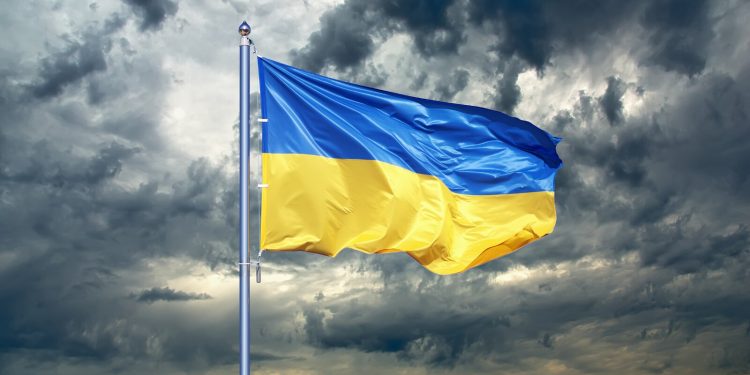It has been four (4) days since the Russia- Ukraine conflict begun and early reports have declared this the largest conventional warfare operation in Europe since the World War II. This has dramatically surged the oil prices to an all-time high since 2014. As the war persists, Nigeria’s trade valued at over $2 billion is at risk!
The war started after the President of Russia, Vladimir Putin ordered the invasion of his troops into the Ukrainian territories, hereby causing several causalities in the area having camped at the Ukrainian borders for weeks. Ukraine reports that more than 100 people have been killed so far including the civilians and others trying to escape the country for safety.
With Russia being the powerhouse in the global economy as one of the largest exporter of crude products, coupled with its impact in the energy sector as one of the biggest producers of natural gas in the world and a major exporter of commodity products. The European Union (EU) have been cautious in imposing sanctions on Russia that could cause a global economy disruption.
However, the EU and its Western counterpart were left with no other option than to impose certain restrictions on Russia. For instance, the President of France, Emmanuel Macron and the European Commission President, Ursula von der Leyen have both issued sanctions on the Russian economy, aiming at the financial, energy and transport sectors, without exempting its export controls and trade financing bans. The Russian President, Putin therefore warned business leaders in the country to work in cohesion with the government, knowing that further restrictions would be placed on the economy.
Nigeria’s international trade with Russia and Ukraine
In the interim, these restrictions imposed on Russia are expected to affect the Nigeria’s economy adversely, especially its importation as Russia plays an important role in the country’s international trade.
- Russia is one of Nigeria’s top sources for its imported items, particularly food items. Although, refined petrol products accounts for the most of Nigeria’s import bill, a major item that is ever-present on the top list of the import items is durum wheat.
- According to the Central Bank of Nigeria (CBN), wheat is the third most widely consumed grain in the country and its import is mainly from Russia.
- A further look at the data shows that Nigeria imported durum wheat worth over N128.1 billion in the 9-month period of 2021, while it recorded an N144.14 billion durum wheat import in 2020.
- Also, Nigeria imports different types of seafoods from Russia, some of which includes mackerel, meat, herrings, and other types of fish, all in frozen form.
- Furthermore, Nigeria imported vaccines for human medicine from Russia in Q4 2020.
- A foreign trade report from the National Bureau of Statistics, recorded that Nigeria imported goods valued at N813.19 billion (over $2 billion estimated) between January and September 2021, representing 3.7% of Nigeria’s total import.
On the contrary, while Russia is a major trade partner with Nigeria, Nigeria has also traded with Ukraine in the past where it imported milk preparation worth N721.45 million in Q1 2021, according to information from National Bureau of Statistics, NBS.
Therefore, with Nigeria being a huge consumer of wheat products, with its local production only accounting for just 1% of the 5 to 6 million metric tons consumed annually. Hence, this demand-supply gap has necessitated the spending of over $2 billion on wheat importation in the country, representing the second highest contributor to the country’s food import bill.
What happens to the Nigerian economy if the Russian –Ukranian war persists?
The downside to the war is that, if supply from Russia is distorted for whatever reason, Nigeria could be faced with further surging wheat prices in its local market because of the supply gap. This could further increase the price of some other by-products of wheats, such as bread, wheat meal and others.
On the positive however, this could lead to intensified efforts by the Central Bank in encouraging the local production of wheat through the disbursement of funds to farmers across the country interested in wheat farming.
Nonetheless, the conflict does not seem like it is going to end any time soon as this has been a resurgent issue since February 2014 in the wake of the Ukranian revolution, focused on the status of Crimea and parts of the Donbas, recognized as parts of Ukraine. Also, the Ukrainian President, Volodymr Zelensiky uncertainty, as he voiced The Ukrainian President, Volodymr Zelensiky has voiced scepticism that seems planned with Russia for near the Belarus border if it would yield results and translate into a chance of peace reign between the two countries.
Therefore, the Federal Government of Nigeria has announced that Hungary and Romania have approved visa-free access to Nigerians coming from Ukraine as the government possesses a wealth of knowledge on the challenges Nigerians in Ukraine are facing trying to cross into border countries. This disclosure is contained in an update on the Russia-Ukraine situation for Nigerians issued by the Federal Ministry of Foreign Affairs and signed by the Permanent secretary, Ambassador Gabriel Adudu.











